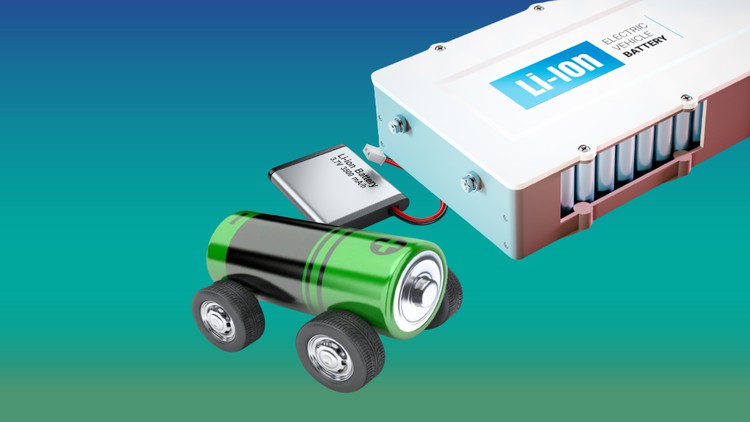
Battery, Lithium ion batteries, Lithium ion battery, Electric vehicles, Electric car, Battery cars, Battery materials
What you will learn
Complete overview about lithium ion batteries
How lithium ion batteries work
Know the history of batteries
Major parts of the batteries
Details about lithium ion batteries
Chemistry of lithium ion batteries
Different type of electric vehicle batteries
Technical aspects
Reasons of batteries getting fired and their solutions
Assembly of lithium ion battery
Applications of lithium ion batteries
Types of batteries used in electronics and electric vehicles
Battery materials used in high performance electric vehicles
The evolution of the batteries
Future of lithium ion batteries and electric vehicles
Pros and cons
Description
This course of lithium ion batteries will help you to discover useful knowledge and facts about the batteries that you really need as a learner. In this class, reason of the batteries getting fired will be discussed in detail and methods to overcome this problem. Types of the batteries used in electronics and electric vehicles depending upon their materials and assembly will be analyzed in detail. When batteries will be strong enough for electric vehicles to be suitable for mass adaption and what are the hurdles there to be removed. If you are interested to learn about the operation of the batteries, this course will also give you a simple but comprehensive overview of how batteries work.
At the end of this class you will be able to:
You will be aware of the basic principles of how batteries work.
Be capable to understand vital concepts in batteries such as current, voltage, capacity, efficiency, anode, cathode, electrolyte and many more.
Description about different types of batteries and how these are different based on different applications.
Understand what lithium ion batteries are and how these are different based on their assembly.
Which batteries materials are used by electric vehicle manufacturers.
Know some essentials and resources to expand your knowledge on batteries.
Future of the batteries for electronics and electric vehicles.
The class is composed of video lectures where I give explanation about interesting facts of the battery technologies. This course is arranged and designed in such a way that with each upcoming section you go deeper and deeper into comprehensive knowledge. This course is fairly suitable for the students who are new to the battery world. If you are already advanced in the battery knowledge then you can skip some of the early lectures and go into more advanced sections of the course. Therefore, join the class and advance your knowledge on the battery technology that powers the world. No prior knowledge necessary for this course.
Content